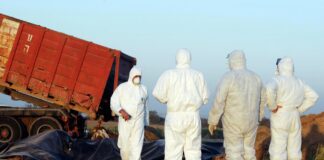Various military officials were purportedly planning for the possibility of a “mass casualty event” during the previous week, shortly before a suicide bombing that resulted in the deaths of nearly 200 other individuals, including 13 American service members.
According to a report in Politico, senior leaders in the military were in possession of “significant” intelligence regarding a potential ISIS-K plot for Kabul Airport. The commanders had also observed that Abbey Gate, the primary means for American citizens to gain access to the airport, constituted the “highest risk” point for the potential attack.
Politico reports that commanders also detailed a plan to close the airport’s Abbey Gate by Thursday afternoon, Kabul time. However, Americans ended up keeping the gate open longer than the commanders wanted in order to allow British allies to keep evacuating their own personnel, who were based at Hotel Baron, located nearby the airport.
Consequently, U.S. troops were still processing various entrants at Abbey Gate at roughly 6:00 p.m. on Thursday in Kabul, which is when a suicide bomber ended up detonating his vest. The attack killed almost 200 people, which included 13 U.S. service members.
Politico also added that the internal conversations amongst top leaders within the Pentagon were based on classified notes from three different calls, which were provided to Politico, as well as interviews with two defense officials who have direct knowledge of the calls. The publication is withholding any information that could impact ongoing operations at the airport.
The transcripts were also authenticated by a defense official, and they provide strong insight into conversations that took place amongst the most senior levels of Pentagon leadership. In other words, it is clear that the highest level officials had been raising alarms, as well as preparing for potential terrorist attacks within a 24-48 hour time frame; tragically, these projections ended up being completely accurate.
John Kirby, the Pentagon spokesman, was asked about the reported conversations between Pentagon officials earlier in the week, inquiring, “the [United States] knew roughly where the attack would take place on Thursday and when it would take place. Why were there US troops at that gate at that time?”
Kirby became visibly irritated at the question, stating that the military would investigate the matter privately and adding that he will “absolutely” not speak to “a — a — a press story that was informed by the unlawful disclosure of classified information and sensitive deliberations here in the Pentagon.”
In response to the suicide bombing, the United States carried out several airstrikes in retaliation. One airstrike took place against ISIS-K terrorists in eastern Afghanistan, while the second attack took place against a vehicle in Kabul, which presumably prevented an “imminent” threat from ISIS-K. However, the second airstrike resulted in civilian casualties.
With regards to the civilian casualties, a CENTCOM statement observed, “it is unclear what may have happened, and we are investigating further.”
“We would be deeply saddened by any potential loss of innocent life,” the organization added.
These content links are provided by Content.ad. Both Content.ad and the web site upon which the links are displayed may receive compensation when readers click on these links. Some of the content you are redirected to may be sponsored content. View our privacy policy here.
To learn how you can use Content.ad to drive visitors to your content or add this service to your site, please contact us at [email protected].
Family-Friendly Content
Website owners select the type of content that appears in our units. However, if you would like to ensure that Content.ad always displays family-friendly content on this device, regardless of what site you are on, check the option below. Learn More



